Former World's Richest Man Secretly Crafts Cars, Deviating from Tesla's Luxury Path, to Forge an American Icon
![]() 04/10 2025
04/10 2025
![]() 504
504
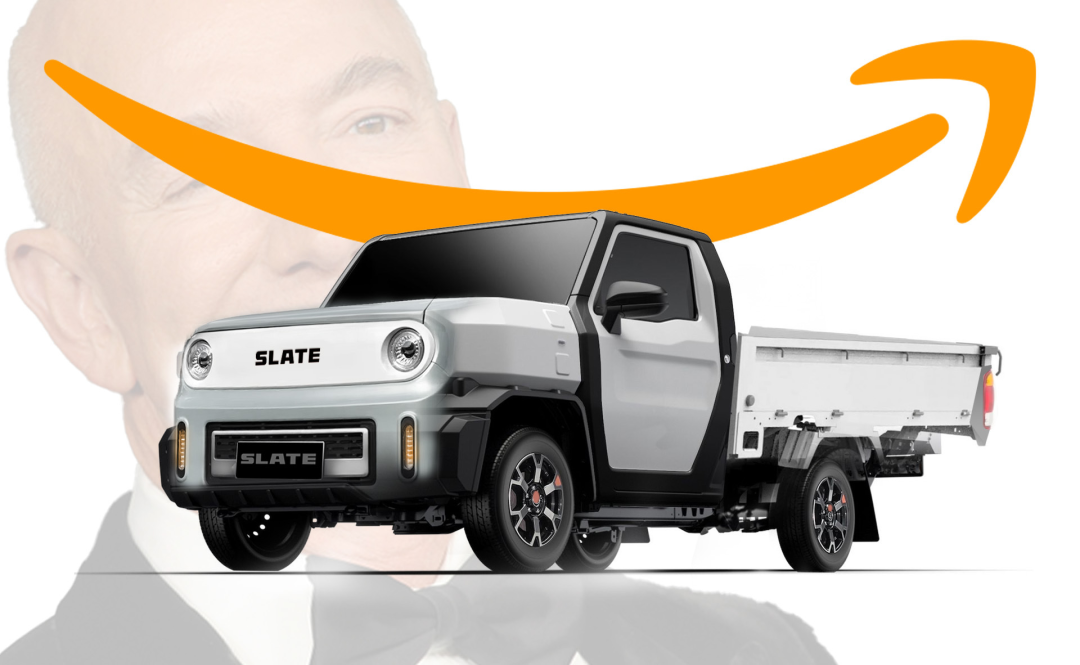
American Version of Wuling Hong Guang Mini EV
"
Author | Wang Lei
Editor | Qin Zhangyong
In 2025, amidst a bustling automotive landscape, there remains a desire to embark on fresh ventures in car manufacturing.
Jeff Bezos, the Amazon founder and once the wealthiest person on Earth, has ventured into this domain as well.
According to TechCrunch, Bezos is quietly funding Slate Auto, an electric vehicle startup based in Michigan, through his family office. Production is anticipated to commence as early as next year.

However, sources close to Slate's internal operations reveal that Bezos' involvement is primarily financial, and he has not personally visited Slate's offices in Michigan or Los Angeles.
With Bezos' endorsement, Slate discreetly secured at least $111 million in funding in 2023 and recruited hundreds of employees, many of whom hailed from Ford, General Motors, Stellantis, and even Harley-Davidson.
This American newcomer stands out amidst the backdrop of wealthy individuals secretly funding ventures and companies patiently preparing to launch vehicles.
01
Affordable Cars + Lucrative Accessories
Despite the secrecy surrounding its operations, Slate harbors ambitious plans to create vehicles accessible to all.
Unlike Tesla and Rivian, which entered the market with high-end models, insiders reveal that Slate intends to follow the footsteps of the Ford Model T or Volkswagen Beetle by introducing a two-seater electric pickup truck priced at $25,000 (approximately RMB 180,000).
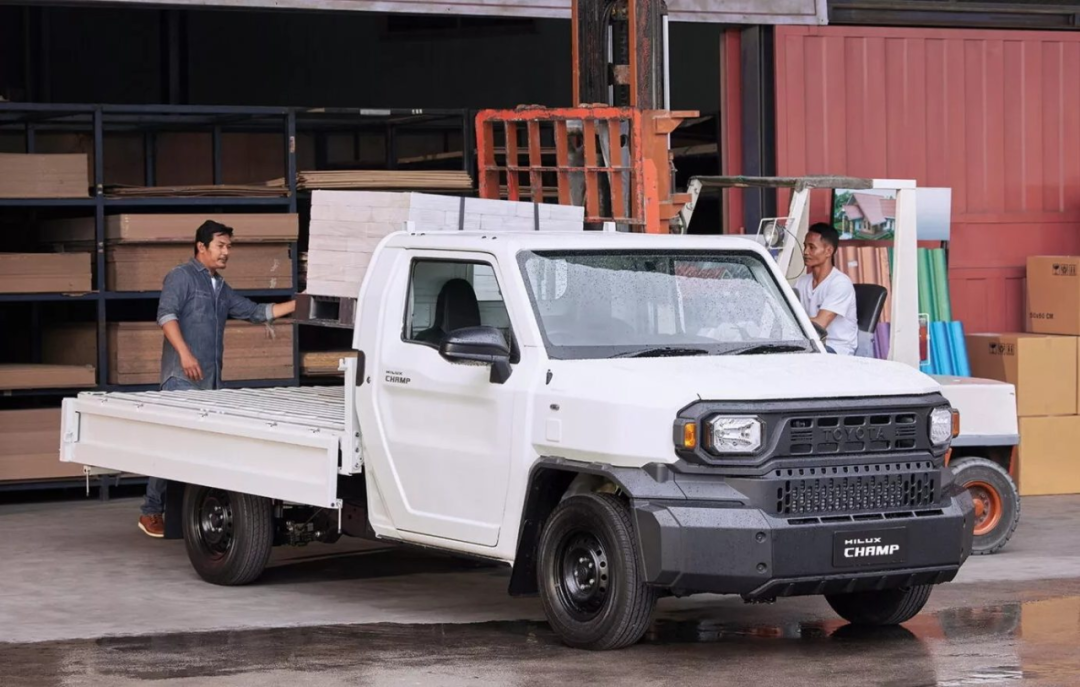
Currently, Slate has showcased a proof-of-concept vehicle to investors at its leased design studio in Long Beach, California.
A $25,000 price tag is indeed affordable. Unlike overseas new energy vehicle startups that initially launch high-margin premium products, utilizing limited sales to generate profits, and subsequently developing lower-priced, mass-producible models with smaller profit margins once brand recognition grows, Tesla and Lucid adhere to this strategy.
However, it's noteworthy that Slate Auto does not solely rely on car sales for revenue. The company intends to sell models at $25,000 and then, over time, allow owners to personalize or upgrade their vehicles, with Slate providing these upgrades.
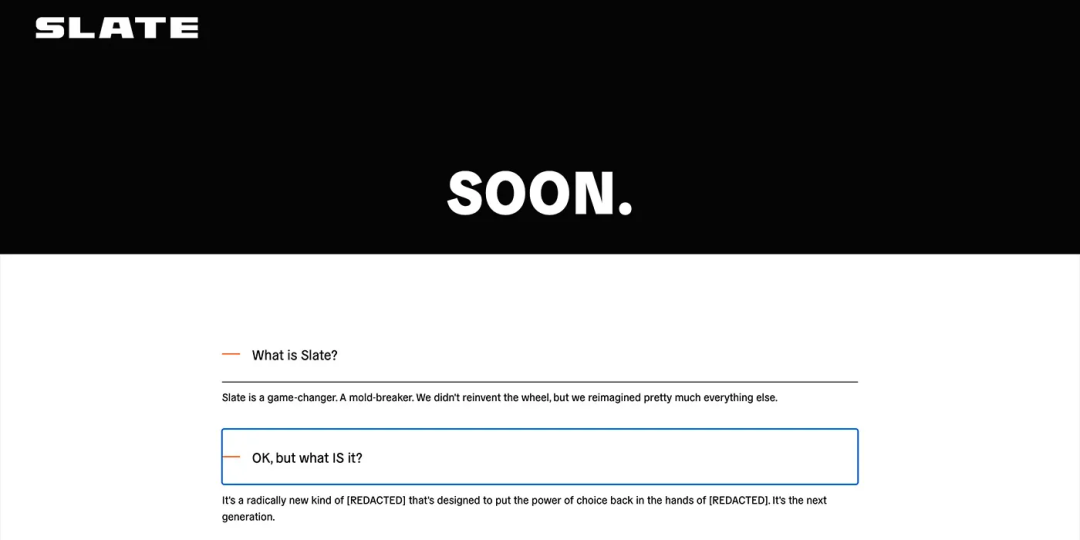
In essence, this is a low-entry price strategy complemented by later customization, utilizing high-margin accessories to offset the low profits of affordable models. These accessories include customized car wraps, smart in-car devices, and apparel accessories.
Car owners can personalize their vehicles and appearance, and Slate even plans to establish a "Slate University" platform to educate users on repairs and personalization upgrades.
Recently, Slate applied to register the trademark: "WE BUILT IT. YOU MAKE IT."
This trademark covers a broad range of goods and services, including items from switches, speakers, to USB ports, and pet seat belts. Furthermore, past job postings suggest that users can significantly participate in Slate's business model.
Does this approach sound familiar? After Xiaomi launched its electric vehicles, it introduced numerous accessories for vehicle upgrades, leading netizens to joke that it was more about selling accessories than cars.
02
A Team of Renowned Names
Slate's business model is likely influenced by its executive team. The startup's Executive Chairman is Rodney Copes, who has a 20-year tenure at Harley-Davidson.
Chief Financial Officer Ryan Green has nearly a decade of experience in the finance department, and both individuals have also worked at Rivian. Additionally, Slate's heads of service, business, accessory product management, and growth marketing have backgrounds at Harley-Davidson, with several key positions held by former Stellantis executives.

Both companies have relied on additional business expansion to boost revenue, with Harley-Davidson focusing on apparel and Stellantis on MoPar parts and accessories.
Moreover, Slate's CEO is not the founder but a seasoned female executive in the automotive industry, Christine Barman.
According to LinkedIn, she graduated from Purdue University and entered the automotive industry through an internship at General Motors, subsequently working at Chrysler for over 20 years, overseeing projects such as the Chrysler 300, Dodge Charger, and Jeep Cherokee.
Later, Barman became the Vice President of Electrics and Electronics at Fiat Chrysler, leading the integration of Google's in-car system Android Automotive and participating in the company's collaboration with Waymo until she left Chrysler in 2017.
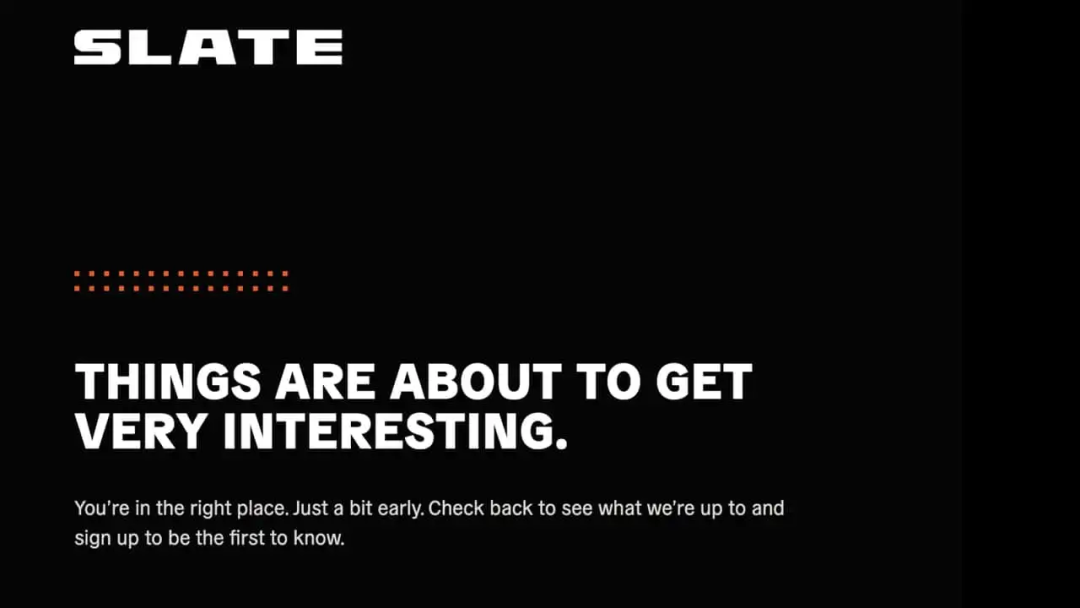
According to insiders, Slate Auto plans to commence mass production in Indiana by the end of 2026 but has yet to announce the factory location or specific production capacity.
03
Backed by Amazon's Financial Muscle
Bezos' investment in Slate Auto is fueled by the startup's strong ties to Amazon.
This connection began with Slate's predecessor, a project named Re:Car, established within Re:Build Manufacturing in early 2022.
Re:Build Manufacturing is a U.S. manufacturing incubator co-founded by former Amazon Consumer Business CEO Jeff Wilke and Miles Arnone, a classmate from the MIT Global Operations Leadership Program. It is also an affiliate of Bezos.

In a sense, this enterprise has been intertwined with Amazon since its inception, with many senior Amazon executives still working at Re:Build Manufacturing, such as former Amazon Vice President and Bezos' technology advisor Wei Gao.
Even the initial name "Re:Car" adheres to Amazon's customary "Re:" prefix naming convention, and Slate's heads of digitalization, e-commerce, and automotive business are all "Amazon-bred" executives.
Amazon's presence is also evident among the investors. In the 2023 Series A funding round, a total of 16 individuals participated, including not only Bezos but also Melinda Lewison, who manages Bezos' family office and is listed as a company director in documents submitted by Slate to state and federal governments.
Additionally, the Series A round attracted investment from former Amazon executive Diego Piacentini, though the exact investment amounts are unclear.
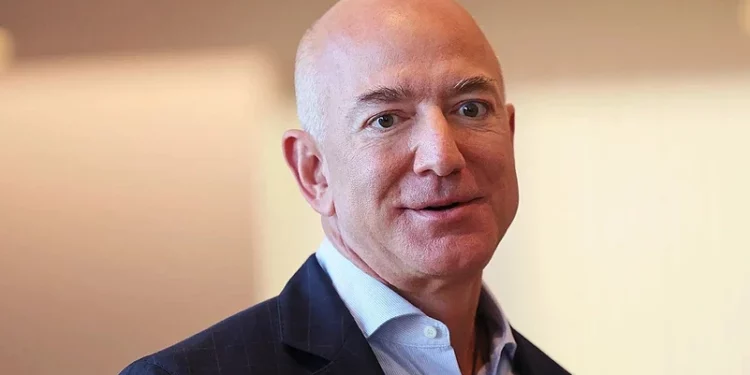
According to insiders, Bezos' personal involvement not only brought Amazon's advanced supply chain management expertise but also attracted significant funding.
While Bezos previously invested in Rivian through Amazon, Slate represents his most direct personal investment in the electric vehicle sector.
With Bezos' backing, funding has flowed smoothly, and Slate completed its Series B funding round by the end of last year. However, the company has not filed any documents with the U.S. Securities and Exchange Commission regarding this funding round.
According to documents obtained by TechCrunch from the Delaware Corporation Registry, Slate authorized the issuance of nearly 500 million preferred shares for the Series B funding round, priced at $2.37 per share. Over the past year, Slate has also authorized the issuance of over 400 million common shares, though pricing details were not disclosed in the documents.
Participants in this round include affluent individuals such as Mark Walter, the controlling shareholder of the Los Angeles Dodgers and CEO of Guggenheim Partners, as well as Thomas Tull, a major investor in Re:Build Manufacturing.
This is evidenced by Slate listing Walter and Tull as new board members, suggesting their involvement in the Series B funding round.
Given Slate's robust investment lineup and its innovative sales model of affordable cars complemented by lucrative accessories, can this billionaire-backed newcomer break through the automotive industry?








